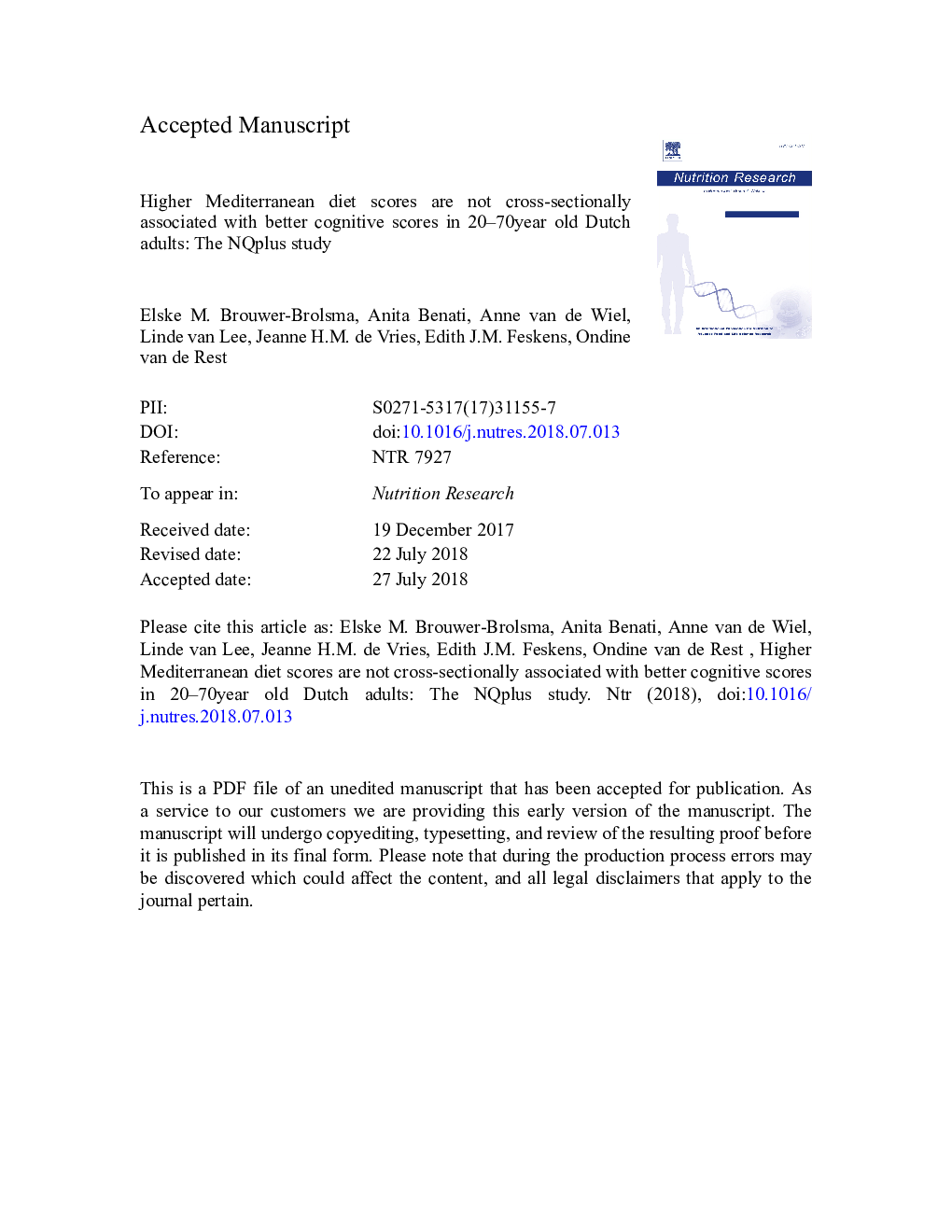| Article ID | Journal | Published Year | Pages | File Type |
|---|---|---|---|---|
| 9955306 | Nutrition Research | 2018 | 37 Pages |
Abstract
Adherence to the Mediterranean Diet (MedDiet) has been suggested to reduce the risk of age-related cognitive decline. Therefore, we hypothesized that adults consuming a more Mediterranean-like diet were more likely to have better cognitive scores. We investigated cross-sectional associations between MedDiet adherence and cognitive performance using data of 1607 Dutch men and women aged 20-70 years. Dietary intake was assessed using a 183-item Food Frequency Questionnaire. MedDiet adherence was defined by a 0-9 point scale; which was based on intakes of vegetables, legumes, fruits/nuts, cereals, fish/seafood, meat/poultry, dairy, ethanol and the MUFA:SFA ratio. Cognitive function was assessed with a neuropsychological test battery. Linear regression analyses adjusted for relevant covariates showed a significant inverse association between MedDiet adherence and everyday memory: specifically β = â0.107 ± 0.046 points (P = .02) for the total population and β = â0.139 ± 0.055 points (P = .01) for those aged â¥50 years. Further exploration of the individual MedDiet food groups suggested that the association between MedDiet and every day memory was predominantly driven by the MUFA:SFA ratio. Moreover, associations were observed between higher ethanol intake with better semantic memory and language production (β = 0.016 ± 0.008 P = .05), higher vegetable intake with better processing speed (β = 0.005 ± 0.002, P = .02), and higher legumes intake with poorer processing speed (β = â0.014 ± 0.006, P = .03). Thus, in this Dutch cohort, higher MedDiet adherence was associated with poorer everyday memory.
Keywords
SDMTSymbol Digit Modalities TestFFQMMSELFTsRTCES-DLetter Fluency Testmild cognitive impairmentSquashPolyunsaturated fatty acidsPUFAAlzheimer's diseaseMediterranean dietbody mass indexBMICognitive performanceCenter for Epidemiologic Studies Depression ScaleObservationalMini-Mental State Examinationcross-sectional Middle-ageMCIfood frequency questionnaireMedDiet
Related Topics
Life Sciences
Biochemistry, Genetics and Molecular Biology
Endocrinology
Authors
Elske M. Brouwer-Brolsma, Anita Benati, Anne van de Wiel, Linde van Lee, Jeanne H.M. de Vries, Edith J.M. Feskens, Ondine van de Rest,
